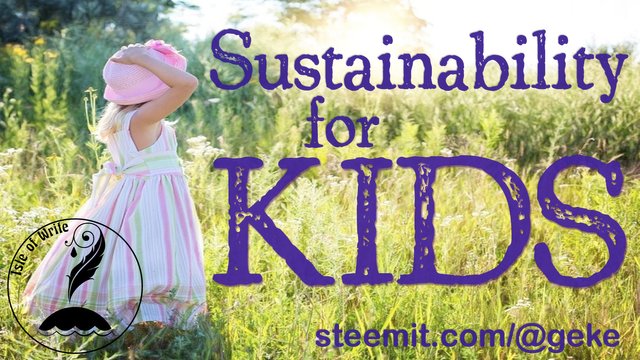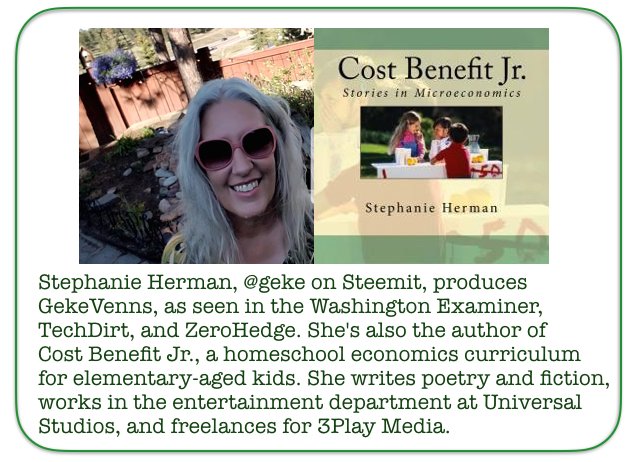Sustainability for Kids: false signals

are posted here: Part 1 | Part 2 | Part 3 | Part 4
John Maynard Keynes didn't accept the argument that people who save become wealthier and more useful to an economy. Instead, he tried to persuade people that when they saved money, they caused unemployment.
“The best guess I can make,” Keynes wrote in “Saving and Spending,” an article published in 1931, “is that whenever you save five shillings, you put a man out of work for a day. Your saving that five shillings adds to unemployment to the extent of one man for one day - and so on in proportion. On the other hand, whenever you buy goods you increase employment.
“Therefore, O patriotic housewives, sally out tomorrow early into the streets and go to the wonderful sales which are everywhere advertised. You will do yourselves good - for never were things so cheap, cheap beyond your dreams. Lay in a stock of household linen, of sheets and blankets to satisfy all your needs. And have the added joy that you are increasing employment, adding to the wealth of the country because you are setting on foot useful activities, bringing a chance and a hope... These are only examples. Do whatever is necessary to satisfy the most sensible needs of yourself and your household, make improvements, build. For what we need now is not to button up our waistcoats tight, but to be in a mood of expansion, of activity - to do things, to buy things...”
But Keynes didn't want to rely on housewives to buy what he thought was necessary. He also suggested that the government get involved to make sure that demand for products was “stimulated.” One of the best ways to do that was exactly what FDR's New Deal set up: public works projects building or re-building infrastructure like roads, trails, and bridges. This didn't just put men to work. It stimulated demand for products like concrete and steel.
But some economists asked a different question: what if the economy is being forced to buy concrete and steel when that's not the most pressing need, or the best use of the economy's resources? Is that sustainable? And worse, what if concrete and steel producers were actually behind this push for the government to buy more and more of their products?

These economists were known as Austrian, from the Austrian School of Economics (which isn't a school with teachers and classrooms, but a school of thought). They argued with Keynes' ideas and defended the acts of saving and even of hoarding money in the same way that Bastiat had.
They pointed out that when consumers saved their money, they were giving signals to the economy. These signals were pretty very obvious: the goods being produced weren't truly or naturally in demand. By pushing “demand stimulus,” Keynes was creating false demand. It does an economy no good to continue to buy goods that nobody wants or needs simply because economists tell you to. In fact, that can hurt an economy because it gives a false signal to producers to keep making things that are less needed. This uses an economy's resources in a more wasteful manner. It's not sustainability; it's false and forced.
A healthy economy relies on signals from people living in that economy. What do I want, how valuable is it to me, what am I willing to pay – when we answer these questions honestly, all of us are sending our answers in what we buy, and that translates into signals for the economy. It tells the economy where to allocate its resources by showing where those resources are most valued - and most valued in reality, not by a government economist's decision.
But there is an even bigger reason why Keynes' theory on saving and unemployment is dead wrong. We'll look at that next time.
This article is one of a series I'm writing for the 30 Day Writing Challenge hosted by @dragosroua. If you want to join, write on a topic that interests you or that you'd like to learn more about and use the tag #challenge30days. As Dragos says, "The key word sequence here is: "write every day."
Interested in a relaxed place
to kick back and chill
with other writers and creative types?
Check out The Isle of Write by clicking below!


wonderful post, thanks for sharing following up
voted
it's good to know, ok let's wait for your next post to see why Keynes' theory on saving and unemployment is dead wrong, and tumbs up, great post
This post has been deemed resteem & upvote worthy by your friendly @eastcoaststeem ran by @chelsea88 (not a bot)
I'm really enjoying your series of articles on sustainability for kids. My dad told me these things over the years as I grew up, but I'd long forgotten them. Thanks for sharing! ✍